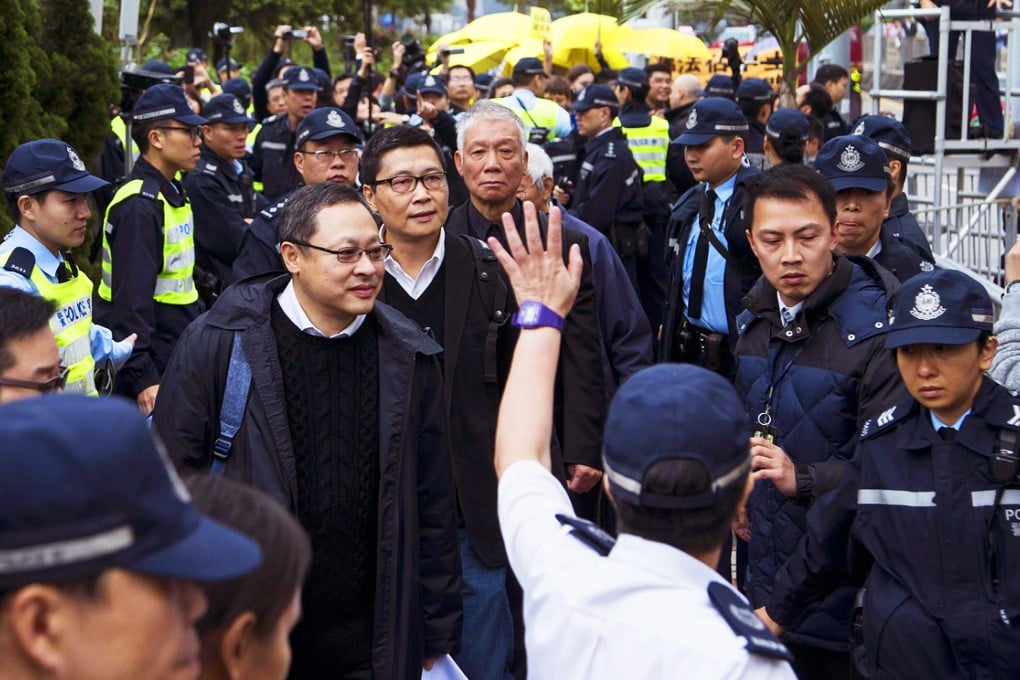Police let Occupy organisers walk away without charge after they turn themselves in
Movement's fathers and an assortment of supporters are not charged or arrested after turning themselves in at a police station

The three co-founders of Occupy Central and more than 60 of their supporters were not arrested or charged yesterday after they turned themselves in for taking part in unauthorised assemblies since late September.
The trio - Benny Tai Yiu-ting, the Reverend Chu Yiu-ming and Dr Chan Kin-man - arrived at the Central Police Station in Sheung Wan with a letter they signed, admitting they had taken part in a rally from September 28 and might have broken laws under the Public Order Ordinance.
Watch: Hong Kong Occupy Central co-founders released without charge after surrendering to police
Through the surrender, the trio aimed to bring a peaceful end to the civil disobedience movement they initiated.
Tai said that during their one-hour stay at the station, police questioned them with a "specially designed" form that listed offences including participating, organising or inciting people to participate in an unauthorised assembly, vandalism and obstructing a policeman's duty.